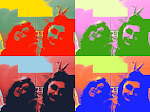“Perception involves selecting, organizing, and interpreting information in order to give personal meaning to the communication we receive.” (Communication, pg 30). This line has very strong meaning to the project that we have been assigned. I have found that my perception of myself differs from that of others. After organizing the words in order to best describe me, I created a mini interview for each of my volunteers. The questions asked were:
a. Why did you choose number one?
b. Is there any other word not on the list that describes me better?
c. Do you think your list compares to the one I made myself?
d. How long have we known each other?
e. On a scale of one to ten, how well do you think you know me?
f. Do you have any additional comments?
g. Was it difficult to rate me?
These questions gave me more insight to myself than the project itself did. The answers, especially to letter c, were much different than I had hypothesized.
“When we think of perception we mostly associate the term with what we see, but we also form perception based on the sound of individuals’ speech patterns, which includes voice, grammar, and word choices.” (Communication, pg 33). My speech patterns are extremely applicable to the way people perceive me. Six out of the six people I interviewed put intelligent in their top eight. Though I do believe I am intelligent, I believe people see it because of my verbal communications. I speak with proper grammar as often as possible. I also have a habit of correcting others’ grammar, which can drive them insane.
Another characteristic that appeared six out of six in the top eight was attractive. I did not expect that because I had it ranked last on my own list. I do not think of myself as very attractive and do not expect others to either. When I asked if people believed that their list compared to mine, two candidates gave me a little insight. One of which, whom I have known for fourteen years said, “You don’t think highly enough of yourself.” (Shannon Roach, Interview) My mother, whom I have known since birth, said, “You don’t think as highly of yourself as others think of you.” (Deborah Bogie, Interview) Both of these quotes shocked me. I have learned that I must work on my self-esteem in order to come off as more confident to others.
“We are creatures of habit, and when others behave in routine or predictable way, we are more likely to gloss over or ignore details, which can lead to misunderstandings or inaccurate communication.” (Communication, pg 32). I feel that this applies to my generosity. Four out of six people put generous in their top eight, I perceive my own generosity in a negative way. I feel I can be too generous and let people take advantage of me. My friend Shannon thought otherwise, when asked why she chose generous as her number one word she said, “She is very kind will give anything to a friend like money, time and compassion. She’s just very kind.” (Shannon Roach, Interview). Knowing that someone I have known for fourteen years and rated an eight on a scale of ten on how well they know me, I have changed my view on my own generosity. I no longer believe that I get taken advantage of as much as I did prior to the interview. I am now happier to help others and feel better about it than I did before.
This assignment opened my eyes to a lot of things I never realized about myself. I am going to work on my self-esteem more and try to be more confident instead of pretending to be. I also think I will feel better about helping people from now on, and not jump to the conclusion that my generosity is being taken advantage of. I believe that all my volunteers were honest and take their opinions very close to heart. I believe this project has given me great insight about myself.
Works Cited:
Seiler, William J., and Melissa L. Beall. Communication: Making Connections. Boston: Pearson Education, 2008. Print.










No comments:
Post a Comment